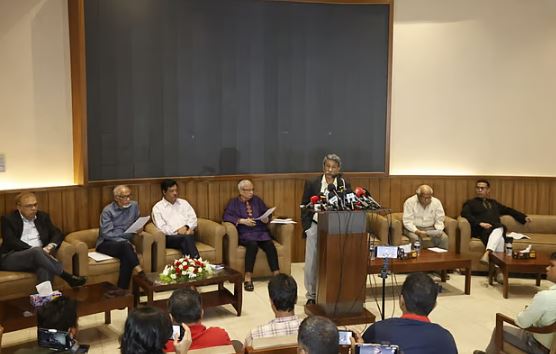The National Consensus Commission is set to hold a fresh round of talks with political parties next week to determine how to implement its reform proposals and ensure adherence to the July Charter, according to the panel`s Vice-Chairman Ali Riaz.
Speaking at a media briefing on Friday, Riaz said: "To ensure the binding nature of the charter written on the basis of consensus and is expected to be signed, and to determine the method of its implementation, it is necessary to hold further discussions with political parties.", reports bdnews24.com.
He added that the commission would also consult with experts next week.
The briefing was held on the anniversary of the interim government`s taking office with a view to outlining the progress made during more than five months of talks with political parties on the July Charter.
“In the last two rounds of discussions with the political parties, a significant number of recommendations or reforms have been made possible in the national consensus on the desired national charter,” Riaz said.
“It is hoped that a suitable decision will be reached in this process within a short time.”
The commission was launched in mid-February following reports from six reform commissions.
Chief Advisor Muhammad Yunus is the head of the panel.
Following preliminary work, the commission held two rounds of dialogue with political parties between March and Jul 31.
After the second round, Riaz said specific ways must be identified to implement the July National Charter, drawing on both the commission’s recommendations and the parties’ input.
On Aug 3, members of the commission met in the parliament building to review points of agreement with the political parties.
The meeting decided that the commission would meet with experts in phases, followed by political parties and alliances, to address proposals and recommendations already agreed upon.
According to the commission, the first phase of dialogue produced political consensus on 62 of 166 proposals, some of which have already been implemented through ordinances, policies and executive decisions.
In the second phase, 20 important constitutional issues were discussed.
Decisions were reached on 11 matters with the support of all parties, while nine others were agreed to by a majority. Dissenting views were also recorded.
Riaz added that 25 issues were not discussed in the first phase due to the “adverse attitude” of some political parties.















-20260221022942.jpg)
-20260221022827.webp)
















